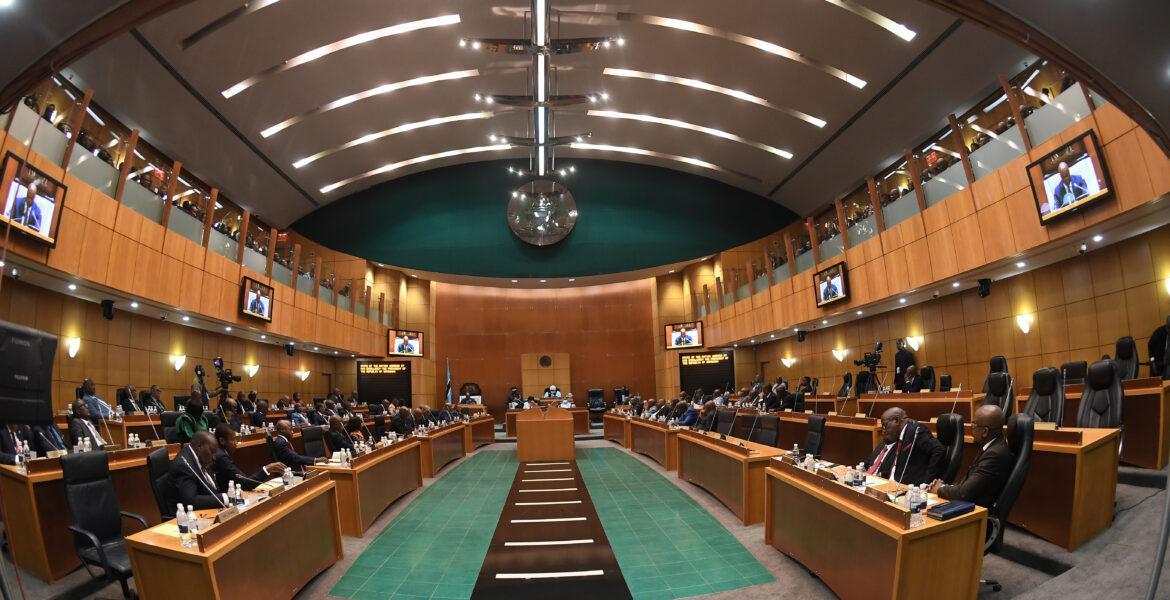Africa-Press – Botswana. Botswana’s constitution and other legal instruments should recognise and duly protect the country’s marginalised tribes such as the Basarwa.
Member of Parliament for Maun West, Mr Caterpillar Hikuama said this when sharing his views at the ongoing inter-ministerial consultations tasked to look at ways of improving the livelihood and socio-economic status of the Basarwa. Mr Hikuama whose constituency has some Basarwa communities, stated that for too long, marginalised groups including Basarwa, had faced systemic marginalisation through dispossession of ancestral land and the resultant erosion of their unique cultural heritage.
He observed that despite Botswana having been a democratic state for some time, the country had orchestrated a systematic approach to marginalise the most vulnerable groups such as Basarwa and other non-Tswana speaking groups. Mr Hikuama observed that the rights of Basarwa and other marginalised groups were undermined by the constitution and other pieces of legislation such as Chieftainship/Bogosi Act, and Tribal Territories Act.
“These laws have recognised only Tswana-speaking tribes, relegating other groups to the status of ‘minority tribes’ with none or limited recognition of their leaders and institutions,” he said.
He said enshrining these rights in the constitution was not necessarily about granting special privileges, but ensuring tribal equality, redressing historical injustices, and upholding the universal principles of human dignity. Mr Hikuama said it was important for the country to acknowledge the distinct circumstances and vulnerabilities of the Basarwa and come up with sustainable remedies to such.
Posing a rhetorical question on what harm recognising a Basarwa ward headed by a Mosarwa chief or headman of record in an already established village could cause, MP Hikuama said such recognition would instead enable the particular Basarwa community to practice and revitalise their cultural traditions, while at the same time affording them access to modern developments and improved services.
On the question of whether it was beneficial and sustainable to allow the Basarwa to maintain their traditional nomadic and hunter-gatherer lifestyle, he noted that while he appreciated the cultural and ecological value, its viability in the current era was riddled with many challenges. The MP also noted that the loss of Basarwa’s traditional livelihoods had led to heavy dependence on government assistance, substance abuse, as well as social disintegration, which had become deeply-rooted in their communities.
Acknowledging that no government could efficiently provide essential services such as schools, clinics, and potable water to small mobile groups scattered across remote areas, he said a different approach could be approached to restore the Basarwa’s self-identity. He also advocated for a multifaceted approach to addressing issues surrounding the conditions of life of the Basarwa, noting that human settlements that actively embraced and integrated diverse cultural groups offered a blueprint for creating vibrant and resilient communities.
The approach he said, moved beyond mere tolerance, but also championed the principles of respect for diversity, harmony, equality and the recognition of cultural heritage as a valuable resource. Mr Hikuama observed that the Basarwa’s daily interactions with people from other tribal communities in schools, workplaces, and other public spaces would help to break down stereotypes and dismantle prejudices about the tribe.
For More News And Analysis About Botswana Follow Africa-Press






